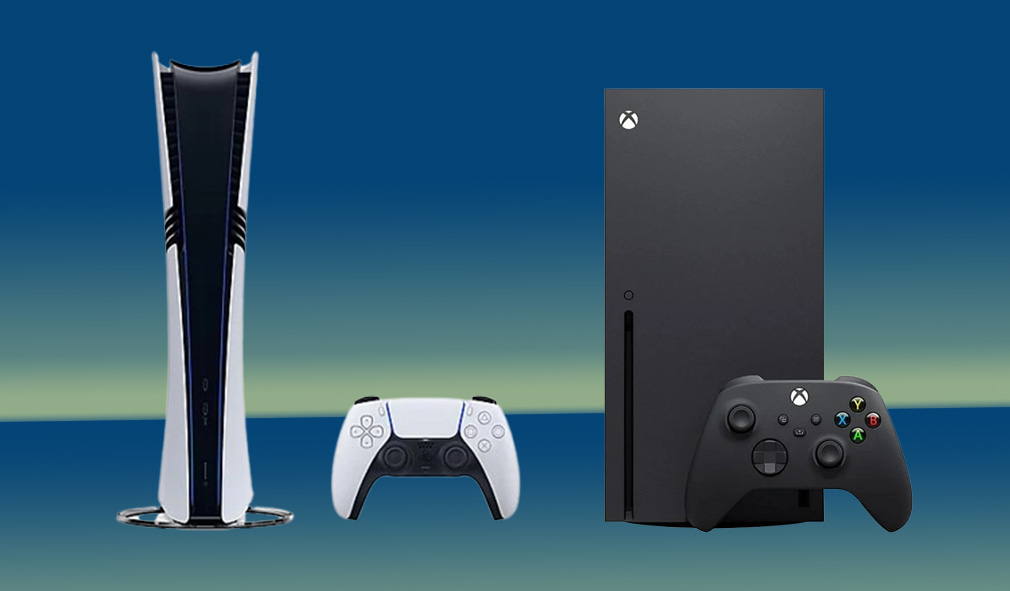The gaming industry is evolving rapidly, and storage has become a key factor in determining the performance of next-gen consoles. With the release of the PS5 Pro and Xbox Series X, one of the most significant upgrades is the use of high-speed SSD storage. Both consoles have adopted SSDs to offer better load times, seamless gameplay, and massive storage expansion.

Click Here to Buy Now on Amazon
However, the question remains: which console has the best SSD? Let’s dive into an in-depth comparison to answer this critical question.
Key Takeaways
| Aspect | PS5 Pro SSD | Xbox Series X SSD |
|---|---|---|
| Default Capacity | 2TB | 1TB |
| Expandable Up to | 6TB | 2TB (Seagate Storage Expansion Card) |
| Read/Write Speed | ~5.5 GB/s | ~2.4 GB/s |
| Technology | Custom NVMe SSD | Custom NVMe SSD |
| Load Times | Faster due to higher read/write speeds | Fast but slightly slower than the PS5 Pro |
Introduction to PS5 Pro SSD
The PS5 Pro has taken a significant leap in storage technology by upgrading to a 2TB NVMe SSD. This is double the storage of the original PS5, which launched with an 825GB SSD. In comparison, the Xbox Series X comes with a 1TB SSD, which is still substantial but falls short in terms of capacity.
The shift to Solid-State Drives (SSD) is essential for modern gaming because they offer faster load times, smoother gameplay, and the ability to store larger game files. Gamers no longer have to wait minutes for games to load or deal with stutters in open-world titles. With the PS5 Pro and Xbox Series X, the focus has moved towards better performance through faster and larger storage options.
Key Features of the PS5 Pro SSD
The PS5 Pro’s SSD is more than just a storage upgrade; it is a game-changer for performance:
- 2TB Default Capacity: The PS5 Pro’s SSD offers twice the capacity of the Xbox Series X, providing ample space for AAA titles, media, and downloadable content. With games getting larger due to advanced textures and ray tracing, having a larger SSD is vital.
- Ultra-Fast Read/Write Speeds: The PS5 Pro SSD can achieve speeds of 5.5 GB/s, allowing for rapid load times and smoother in-game transitions. This is significantly faster than the Xbox Series X, which is capped at around 2.4 GB/s.
- Expandable Storage: The PS5 Pro also retains its NVMe SSD slot, which allows users to upgrade their storage up to 6TB. This is a major win for players who download multiple large games or prefer to keep them installed for quick access. In contrast, the Xbox Series X allows expansion only up to 2TB via a proprietary Seagate Storage Expansion Card.
Benefits of the PS5 Pro SSD
The benefits of the PS5 Pro’s SSD are extensive, impacting several aspects of the gaming experience:
- Instant Game Load Times: Games like Spider-Man: Miles Morales that used to take minutes to load on hard drives now load in seconds on the PS5 Pro. The SSD’s read/write speeds allow games to stream textures, environments, and assets directly from the storage, making gameplay fluid and immersive.
- More Game Installations: With a 2TB SSD, players can install up to 40-50 large AAA games, compared to about 20-25 on the Xbox Series X. This means less time spent uninstalling old games to make space for new ones.
- Better Performance in Open-World Games: Open-world games that rely on streaming large environments and assets in real-time, such as Horizon Forbidden West, benefit immensely from the PS5 Pro’s SSD speed. The faster data transfer reduces pop-ins and loading of distant objects, making the experience more seamless and visually stunning.
How to Upgrade PS5 Pro SSD
If 2TB isn’t enough, upgrading the PS5 Pro’s SSD is straightforward:
Steps to Upgrade PS5 Pro SSD:
- Turn Off the Console: Ensure your PS5 Pro is turned off and disconnected from the power source.
- Access the SSD Expansion Slot: Remove the outer casing to reveal the expansion slot located underneath.
- Insert NVMe SSD: Carefully insert a compatible M.2 NVMe SSD. Make sure to follow Sony’s official guidelines to avoid damaging the system.
- Reassemble and Format: Once the SSD is installed, reassemble the console, boot it up, and format the new SSD in the system settings.
Recommended SSD Models for PS5 Pro:
- WD_BLACK SN850X: High-speed with up to 7,300 MB/s read speeds, perfect for PS5 Pro expansion.
- Samsung 980 Pro: Another excellent option, boasting speeds up to 7,000 MB/s.
Comparing PS5 Pro SSD with Xbox Series X SSD
While both consoles offer custom NVMe SSDs, the PS5 Pro outshines the Xbox Series X in several key areas:
- Capacity: The PS5 Pro comes with 2TB, while the Xbox Series X only offers 1TB. With many next-gen games requiring over 100GB of space, the additional storage is invaluable for PS5 Pro users.
- Speed: The PS5 Pro’s 5.5 GB/s read/write speed nearly doubles that of the Xbox Series X, meaning faster load times and better in-game streaming.
- Expansion: While the Xbox Series X is limited to 2TB expansion via a proprietary Seagate card, the PS5 Pro allows for up to 6TB of storage with third-party NVMe SSDs, giving users more flexibility and better value for money.
Troubleshooting PS5 Pro SSD Issues
Even with advanced SSD technology, some issues might arise:
- Running Out of Space: If you find yourself running out of space, consider upgrading the SSD as detailed above. Alternatively, manage your storage by deleting older games and media.
- Slow Performance: Occasionally, users might experience slower performance if the SSD becomes cluttered. Regularly clearing cache or reinstalling games can help improve speeds.
- Installation Problems: Make sure to purchase SSDs that are Sony-certified and meet the required speed benchmarks to avoid compatibility issues.
Conclusion
When it comes to SSD performance, the PS5 Pro takes the lead over the Xbox Series X. With more storage, faster read/write speeds, and better expandability, the PS5 Pro offers a superior gaming experience. Gamers looking for faster load times, more game installations, and smoother performance should consider the PS5 Pro for its unmatched SSD capabilities.
Also Check:
- PS5 Pro Backward Compatibility: What Does This Mean for Gamers
- When Is the PS5 Pro Coming Out? Release Date, Specs, and Price Explained
- Why PS5 Pro AI Upscaling Is the Future of Console Graphics
- Why Ray Tracing on PS5 Pro Sets a New Standard for Console Graphics
- Z-Edge 30-inch Curved Gaming Monitor Review: A Perfect Blend of Performance, Design, and Value
